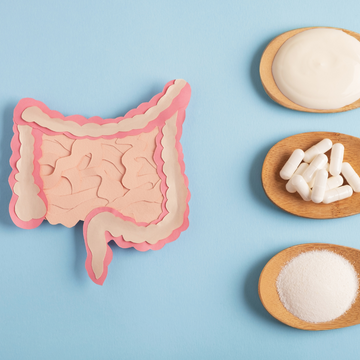Understanding the Gut Microbiome: A Beginner's Guide
by Namita S on Feb 09, 2024

In the intricate world of our bodies, there exists a bustling community of microorganisms that play a pivotal role in our overall health and well-being. Welcome to the gut microbiome, a complex ecosystem residing in our digestive tract that influences everything from our immune system to our mental health.
What is the Gut Microbiome?
Picture your gut as a bustling metropolis, teeming with trillions of microorganisms such as bacteria, fungi, and viruses. Collectively, these microorganisms form what we call the gut microbiome. While the word "bacteria" might evoke thoughts of illness, the majority of microbes in our gut are beneficial and essential for maintaining good health.
The Role of the Gut Microbiome:
Think of the gut microbiome as a well-organized team of workers, each with its own specific tasks. These microbes aid in digestion, produce essential nutrients, regulate metabolism, and even communicate with our immune system. They also help to ward off harmful pathogens, keeping our gut environment balanced and healthy.
Factors Influencing the Gut Microbiome
Several factors can impact the composition and diversity of our gut microbiome. Diet plays a significant role, with a varied and fiber-rich diet supporting a diverse microbiome. Antibiotic use, stress, and lifestyle choices like smoking or excessive alcohol consumption can also affect microbial balance.
Maintaining a Healthy Gut Microbiome
Improving the health of the gut microbiome is crucial for overall health. Here are some simple steps to get started:
Eat a Balanced Diet: Incorporate plenty of fruits, vegetables, whole grains, and fermented foods like yogurt and kimchi into your diet. These foods provide essential nutrients and nourishment for beneficial gut bacteria.
Stay Hydrated: Adequate hydration supports digestion and helps maintain a healthy gut environment.
Reduce Stress: Chronic stress can disrupt the balance of gut microbes. Practice relaxation techniques such as meditation, yoga, or deep breathing exercises.
Limit Antibiotic Use: While antibiotics are essential for treating bacterial infections, overuse can disrupt the gut microbiome. Use antibiotics only when necessary and follow your healthcare provider's instructions.
Get Plenty of Sleep: Quality sleep is crucial for overall health, including gut health. Aim for 7-9 hours of sleep per night to support a healthy microbiome.




